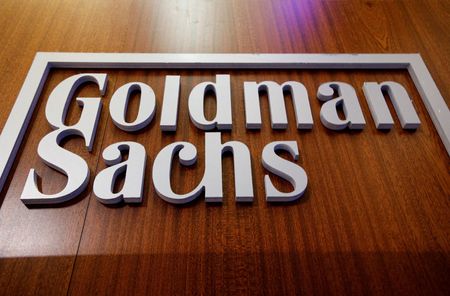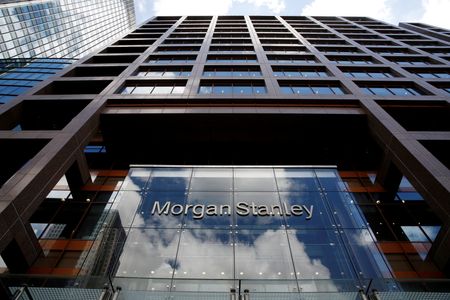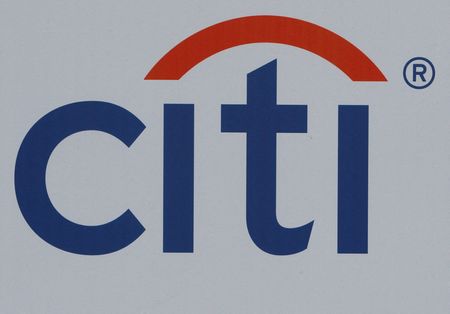


By Mehnaz Yasmin
(Reuters) – The cost to insure bonds of Goldman Sachs, Morgan Stanley and Citigroup against default hit two-year highs on Monday on growing fears the U.S. Federal Reserve’s aggressive moves to tame inflation might tip the economy into recession.
Credit risks have worsened since the Ukraine crisis as some big U.S. banks took a hit to their mainstay businesses, with capital market activity coming to a standstill and lending expected to remain lackluster.
That has prompted bondholders to consider hedging strategies to protect against potential defaults.
The war in Ukraine and Western sanctions could knock more than 1% off global growth this year and add two and a half percentage points to inflation, the OECD has said.
JP Morgan Chase & Co, Goldman Sachs and Citigroup combined put aside a $3.36 billion in credit loss reserves in the first quarter. That is a reversal from the past 12 months when lenders released billions in reserves after losses related to COVID-19 failed to materialize.
Spreads on five-year credit default swaps (CDS) on Goldman Sachs closed at $108.92 on Monday, Morgan Stanley at $104.96 and Citigroup at $107.94, their highest in at least two years.
CDS is a contractual agreement that lets buyers swap credit risk with sellers and thus insures bondholders against default.
Spreads on five-year CDS on JP Morgan, Wells Fargo and Bank of America Corp also look set to exceed near two-year highs set in March.
“Any short-term spike in CDS on U.S. banks is likely related to fears over a Russian default,” said Thomas J. Hayes, chairman at Great Hill Capital in New York.
The correlation co-efficient between Russia’s five-year CDS [RUGV5YUSAC=R] on sovereign debt and the banks’ CDS is between 0.5 and 0.6 in the five months ended May this year, suggesting a strong positive correlation.
A derivatives panel has ruled on Wednesday that Russia could be in default after it failed to make a payment due on April 4 in U.S. dollars on two sovereign bonds, bringing a payout on billions of dollars in default insurance a step closer.
(Reporting by Mehnaz Yasmin in Bengaluru; Editing by Alden Bentley and Anil D’Silva)

